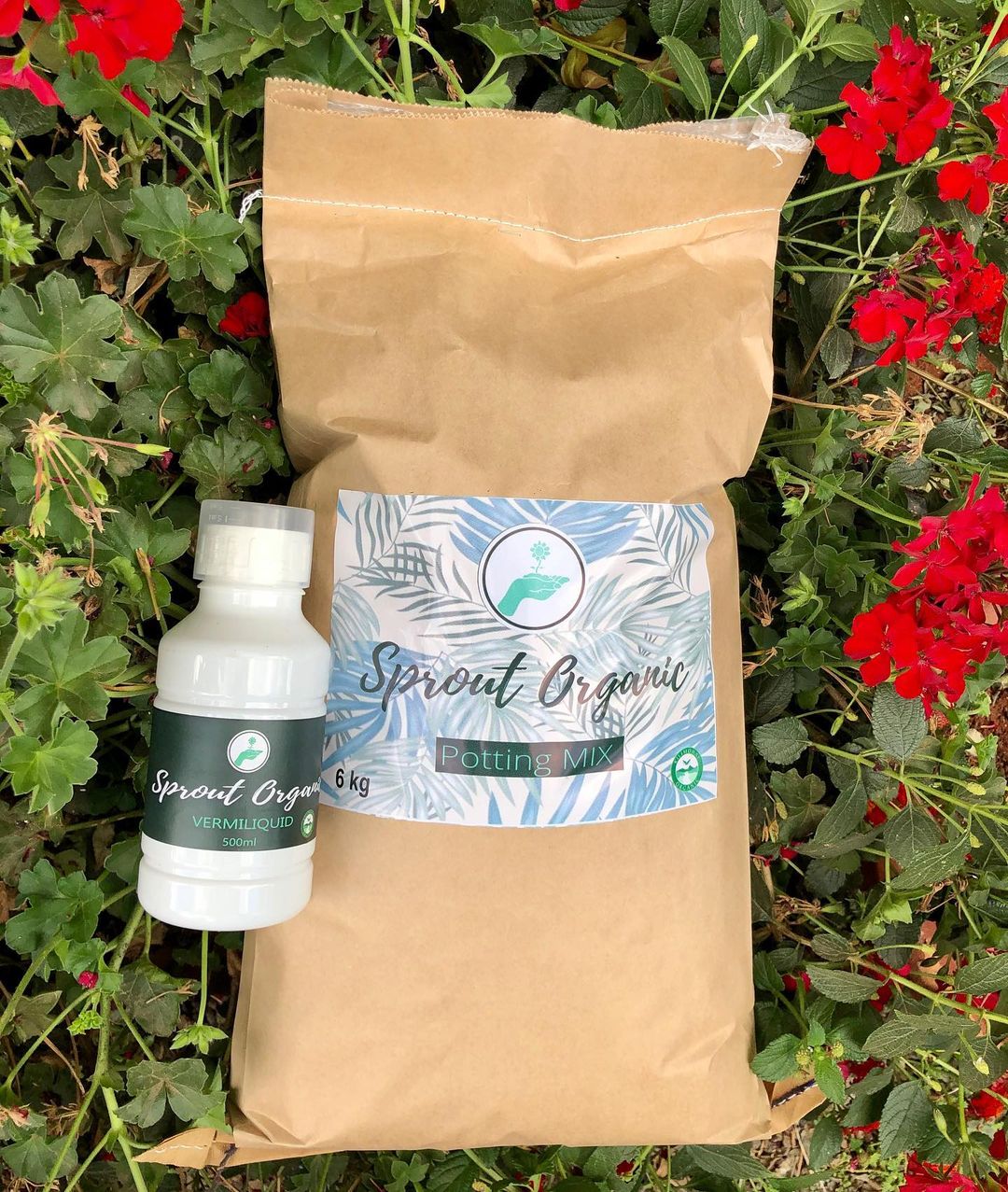By George Munene
At just 29 years old Ted Gachanga has built a successful agribusiness—Sprout Organic—supplying value-added vermicompost and vermiliquid fertiliser to a lucrative but underserved urban grower market.
Having run for six years now, the business supplies two tons of the organic fertiliser monthly, even setting up shop in upmarket Lavington, Nairobi, to better serve their clients.
“We are focused on a niche client base of urban farmers and gardeners, offering a readily accessible potting mix with vermicompost as the main planting media,” Gachanga explains. They don’t have to get their hands soiled and the mixture comes in packaged bags. Unlike most soils, it is well aerated, porous, and doesn’t compact. “While a kilogram of raw vermicompost is sold for between Sh 60-100, value addition, home delivery, and our target market allow us to sell our growing media for Sh200.”
The choice to serve this atypical market is also informed by the worms used in vermicomposting being difficult to propagate. This constrains scaling up to serve your everyday farmer.
Related News: Kiambu farmer cuts lucrative niche in vermicomposting
A Master of Management in Agribusiness holder, Ted was introduced to vermicomposting by his lecturer at Strathmore Business School Dr. Freddie Acosta.
There are two common worms used for vermicomposting; the African Night Crawlers and the Red Wigglers. Wigglers consume more waste and multiply prolifically — one worm births 10 others in 8-12 months.
The worms are fed on non-acidic organic waste. This ensures there’s a balance in pH and nutrients and that the refuse is well worked on.
While there is good money to be had in selling earthworms — a kilo goes for Sh3,000 — the farm does this infrequently and only when they need to balance out their worm population.

Contrary to prevailing beliefs, Gachanga explained that the making of vermicompost is a basic DIY project: The worms are kept in dark confined ground with limited exposure to sun, heat, and light. Their habitat should be moist but not wet. A kilo of worms takes up one square meter; if they are overpopulated, reproduction will be curtailed and the compost will be poorly aerated which will limit plant nutrient uptake.
Related News: Fertiliser Crisis: Organic gold manure that doubles farmer yields
Related News: Fertiliser Crisis: Making compost manure as alternative to store-bought fertilisers
“Most Kenyan soils are deprived of organic matter, this in turn has led to depreciating yields for farmers. Vermicompost is an example of an organic soil amendment; a substance extremely rich in organic matter, macro and microelements that increases soil fertility by improving its physical properties, such as water retention and infiltration, permeability, drainage, aeration, and structure.
However, unlike synthetic fertilisers, soil amendments aren’t a quick fix, and to realise these benefits require continued long-term use,” Ted said.
Sprout Organic: 0701 113380